There's something about leather that brings classy vibes and timeless elegance to your home. It looks great no matter where you place it, and its durability means those vibes can last a long time!
Unfortunately, even the toughest leather has an enemy — fading! This common issue can leave your once-lush leather looking tired and worn. But don't worry; fading is highly preventable, and Great Bend Appliance Center has the scoop on how you can keep your leather furniture looking fabulous always!
Sunny Sabotage
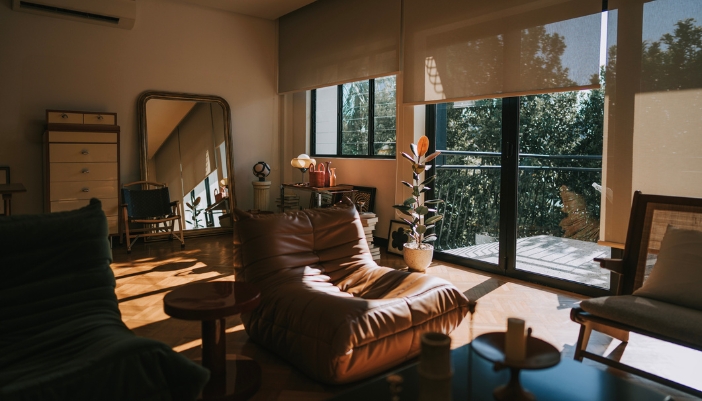
Love that sunny spot on your leather couch? You might want to be careful — UV rays are one of the biggest causes of fading! When sunlight hits leather, it breaks down pigment and oils, lightening the color over time. So, to avoid that, try these steps!
- Use curtains, blinds, or UV-blocking window films to shield your leather from direct sunlight.
- Rearrange your furniture to avoid prolonged exposure to sunlit areas.
- Consider using protective covers during peak sunlight hours to shield your leather furniture.
- Apply a UV-protectant leather spray for extra defense against sunlight.
- Rotate the placement of your furniture periodically to ensure even exposure.
The Hot Seat
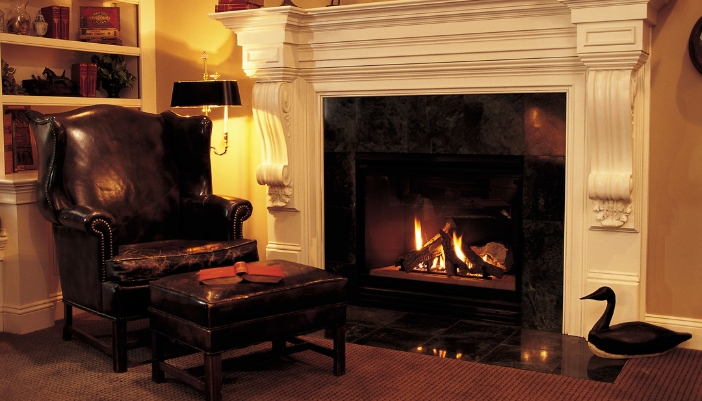
Feeling the heat? So is your leather furniture! High temperatures can dry out and crack leather, causing it to lose its color and charm. Unless you follow these steps:
- Keep furniture away from fireplaces, radiators, and heating vents.
- Use air conditioning or fans to maintain a consistent temperature.
- Avoid placing leather furniture in areas that get excessively warm.
Moisture Mayhem
Humidity might be great for your skin, but it’s a different story for your leather. Fluctuating humidity levels can wreak havoc on leather, causing it to lose its vibrant color. But don’t worry; here are a few steps to address it!
- Use humidifiers or dehumidifiers to keep humidity levels stable.
- Address spills quickly to prevent moisture damage.
- Avoid over-saturating leather during cleaning; use damp cloths sparingly (and don’t forget to vacuum regularly!).
- Place a humidity monitor in the room to keep an eye on moisture levels.
- Use coasters and trays to prevent water rings and spills on leather surfaces.
Chemical Chaos
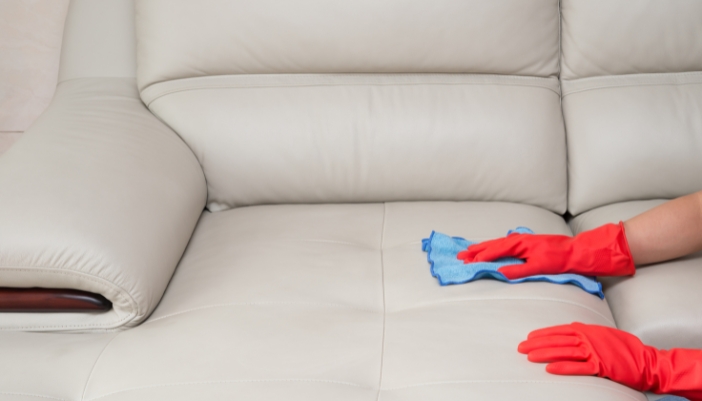
Those strong cleaning agents might work wonders on your countertops, but they're a nightmare for leather. Harsh chemicals can strip leather of its natural oils and pigments, leaving it dull and damaged. So, you’ll have to adjust your cleaning regimen!
- Opt for cleaners specifically designed for leather.
- Clean gently to avoid stripping away natural oils.
- Test any new cleaner on a small, hidden area first to ensure it’s safe for your leather.
- Avoid using household cleaners like bleach or ammonia-based products on leather.
- Use a soft, microfiber cloth to apply cleaners, which is gentler on the leather surface.
- Follow up with a leather conditioner to replenish lost oils and keep your leather supple and hydrated.
The Daily Grind
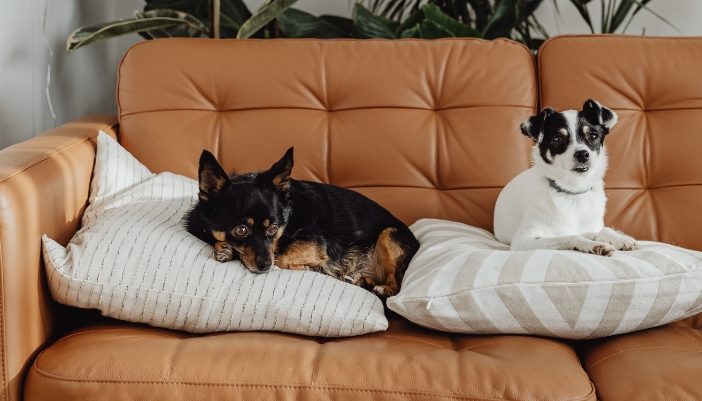
Your leather furniture takes a lot of hits from daily life. Between kids, pets, and general use, it’s no wonder it starts to show wear and tear. All that friction can cause the leather to wear down and start fading. But with these tips, you can keep it looking sharp!
- Use throws, pillows, or covers in high-use areas to protect the leather from constant wear.
- Rotate cushions and seats regularly to spread out the wear and tear.
- Encourage everyone to switch up their favorite spot to sit, spreading the use around.
- Regularly fluff and turn cushions to keep their shape and maintain a fresh look (especially if you have removable cushions!).
- Trim your pet's nails regularly to prevent scratches and damage to the leather.
- Gently vacuum the leather using a soft brush attachment to remove dust and debris without causing abrasion.
- Apply a leather protector to high-traffic areas for additional defense against daily wear.
Pro Tip:
For minor scratches and scuffs, try using a leather repair kit to prevent them from worsening — it just might save your leather!
TLC: Tender Leather Care
Leather furniture needs a little TLC to stay looking its best. Without regular care, leather can dry out and fade, losing its luxurious look and feel. Here’s how to keep it supple and vibrant:
- Dust regularly to prevent dirt and debris from settling into the leather.
- Use leather conditioners periodically to keep the leather hydrated and supple.
- Wipe up spills immediately to prevent stains and drying.
- Follow a routine cleaning schedule to maintain the leather’s natural oils.
- Buff leather with a soft cloth to maintain its shine and luster.
Bonus: Fresh Start
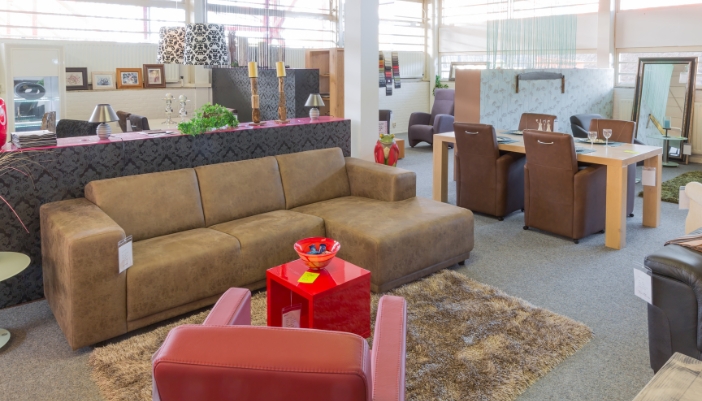
Is your leather furniture beyond help? It might be time to upgrade at Great Bend Appliance Center! But don’t choose just any leather furniture — you need one that matches your lifestyle and will last! So, as you’re considering, think of these factors:
- Type of Leather: Full-grain leather is the most durable and ages beautifully, while top-grain leather offers a balance of durability and softness. If you’re looking for budget-friendly options, consider bonded or faux leather, though they might require more frequent replacement.
- Color Choices: Lighter colors can show stains and wear more easily, so darker shades might be better for households with kids or pets.
- Finish: Aniline leather is the most natural-looking but can be prone to stains and fading. Semi-aniline and pigmented leather have protective coatings, making them more wear and tear-resistant.
- Usage Areas: For high-traffic areas like living rooms, opt for more durable leather types and finishes. Reserve more delicate leather pieces for less-used areas like a formal sitting room.
Have questions on finding the best leather furniture for your home? Our experts are on the case! Visit us in-store or online today!